Fullbacks are going extinct. You know it. I know it. Kyle Juszczyk knows it.
It's no secret that the NFL has been steadily devaluing fullbacks for years now. But is that because the position has become obsolete in today's pass-first, high-scoring game? Or is it because there's a deficiency of fullbacks who possess an invaluable skill set for a modern offense?
According to Pro Football Focus, only five fullbacks have played at least 100 snaps this season and only two have reached the 200 mark. Juszczyk is far and away the leader at 379 while playing a career high 64 percent of snaps for the San Francisco 49ers in 2018. He's posted 21 receptions for 255 yards and a touchdown and has more receiving yards than Kenyan Drake, LeSean McCoy and Ezekiel Elliott. That's big time usage, even in an offense like Kyle Shanahan's that is predicated on the presence of a fullback.
"Every game, if the other team has a fullback, he'll come up to me, and it's usually the exact same conversation," Juszczyk said. "It's, 'Damn, man, they've got you doing everything. You've got it good.' Literally every single time. There's not much I can say. I just grin."
But Shanahan isn't a conservationist striving to protect football's equivalent to the Bengal tiger. Juszczyk provides a legitimate mismatch, and Shanahan utilizes him as such. That's why Juszczyk is far more of a unicorn than the last of a dying breed.
"Kyle is a great player," Shanahan said. "He's as good of a fullback as there is or probably has been."

Juszczyk's aptitude at the position stems from a robust résumé as a high school football player. He earned all-state honors in Ohio at linebacker. He also played tight end while dabbling at wide receiver, quarterback and running back for good measure. Most colleges recruited Juszczyk as a linebacker, but he preferred to play offense. Harvard gave him that opportunity, and he signed with the Crimson to play tight end.
He went on to be a two-time All-American and three-time All-Ivy League selection. Juszczyk's 125 career receptions rank sixth in program history, and his 22 receiving touchdowns are the third-most of any Harvard player. And yet, despite all of the production and accolades, he had no future in the NFL as a tight end.
"Rarely does anyone want to be a fullback," Juszczyk said. "You become a fullback by necessity. I was a tight end who was too short. That's what my agent told me during the pre-draft process."
Juszczyk made the position switch prior to the Senior Bowl. A week in Mobile, Ala., was a baptism by fire. His physicality as a former high school linebacker served him well at fullback.
"I'd never pass blocked from the backfield in my entire life," Juszczyk said.
But he held his own and even earned strong praise from acclaimed NFL Network draft analyst Mike Mayock after one standout rep. Juszczyk stood up the linebacker who came barreling down on him and ultimately planted him on his back.
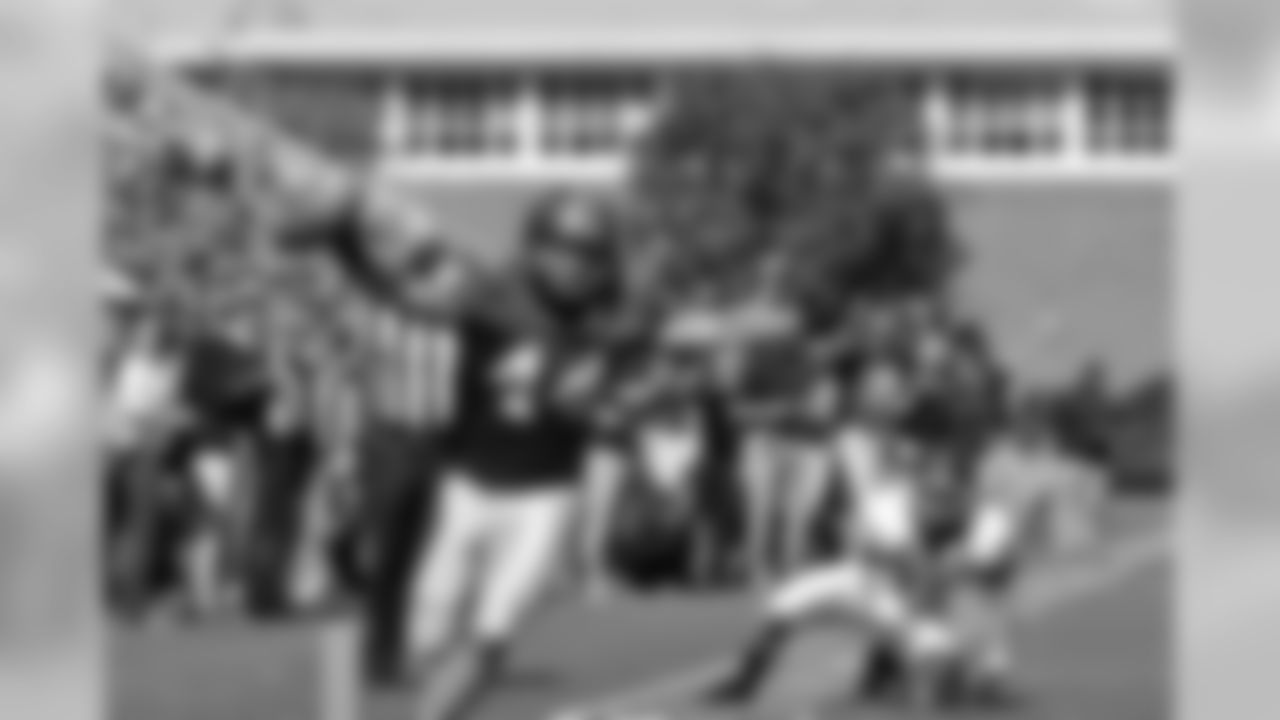
Kyle Juszczyk at Harvard

Kyle Juszczyk at Harvard

Kyle Juszczyk at Harvard
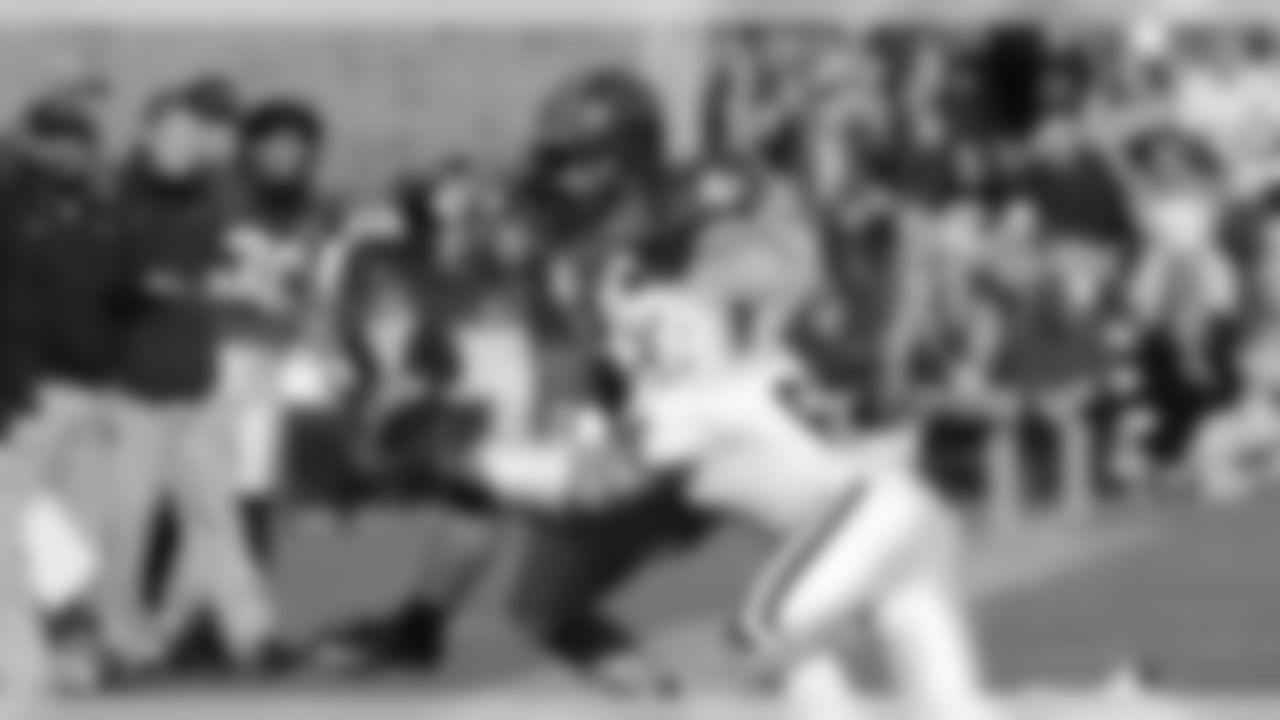
Kyle Juszczyk at Harvard
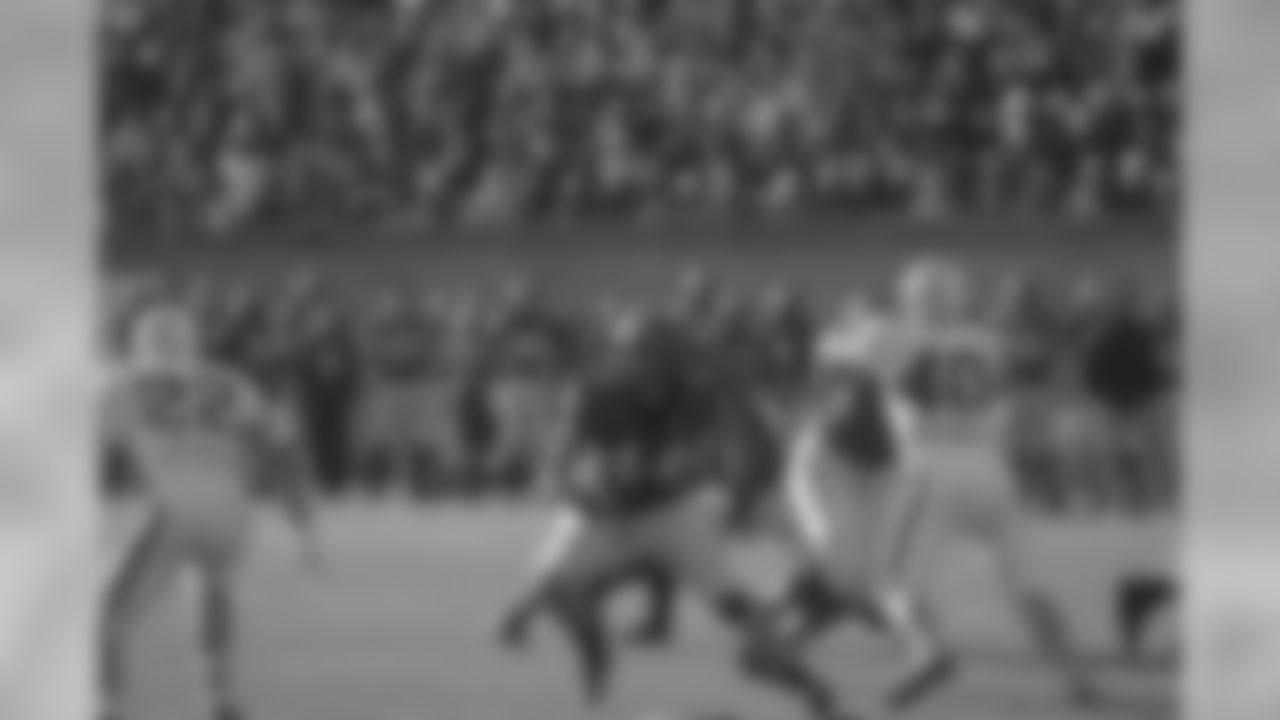
Kyle Juszczyk at Harvard

Kyle Juszczyk at Harvard
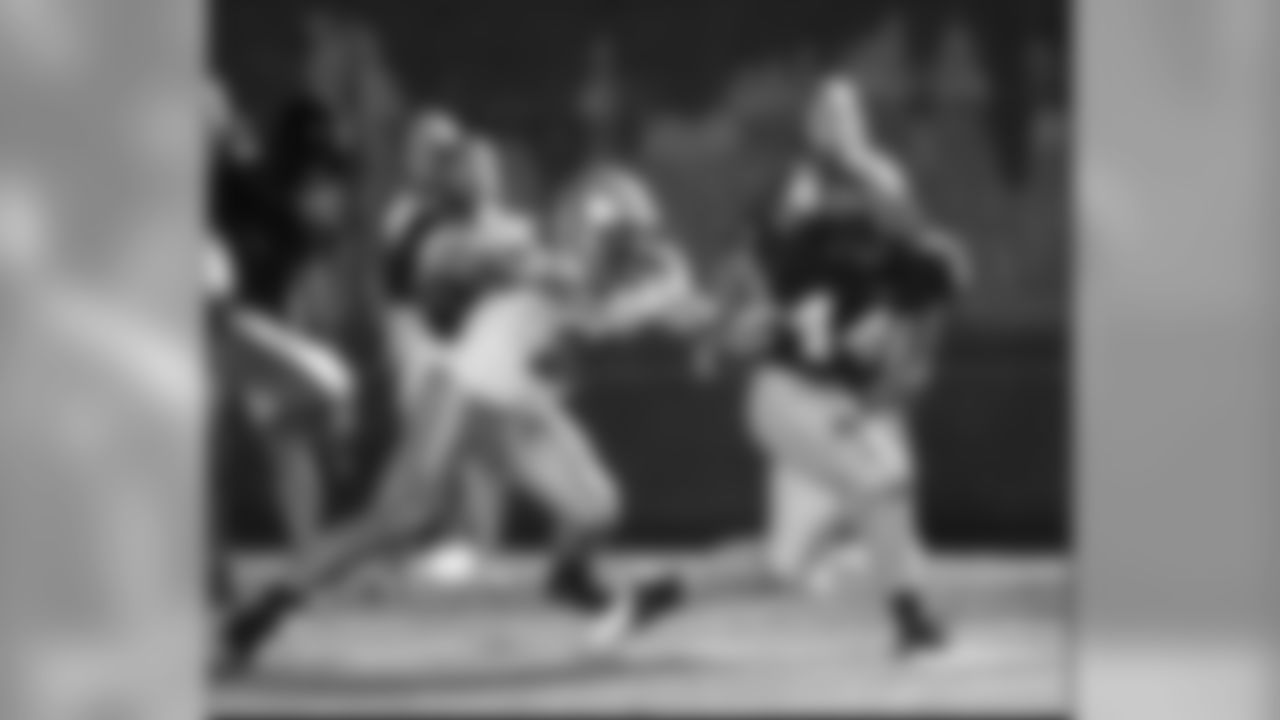
Kyle Juszczyk at Harvard
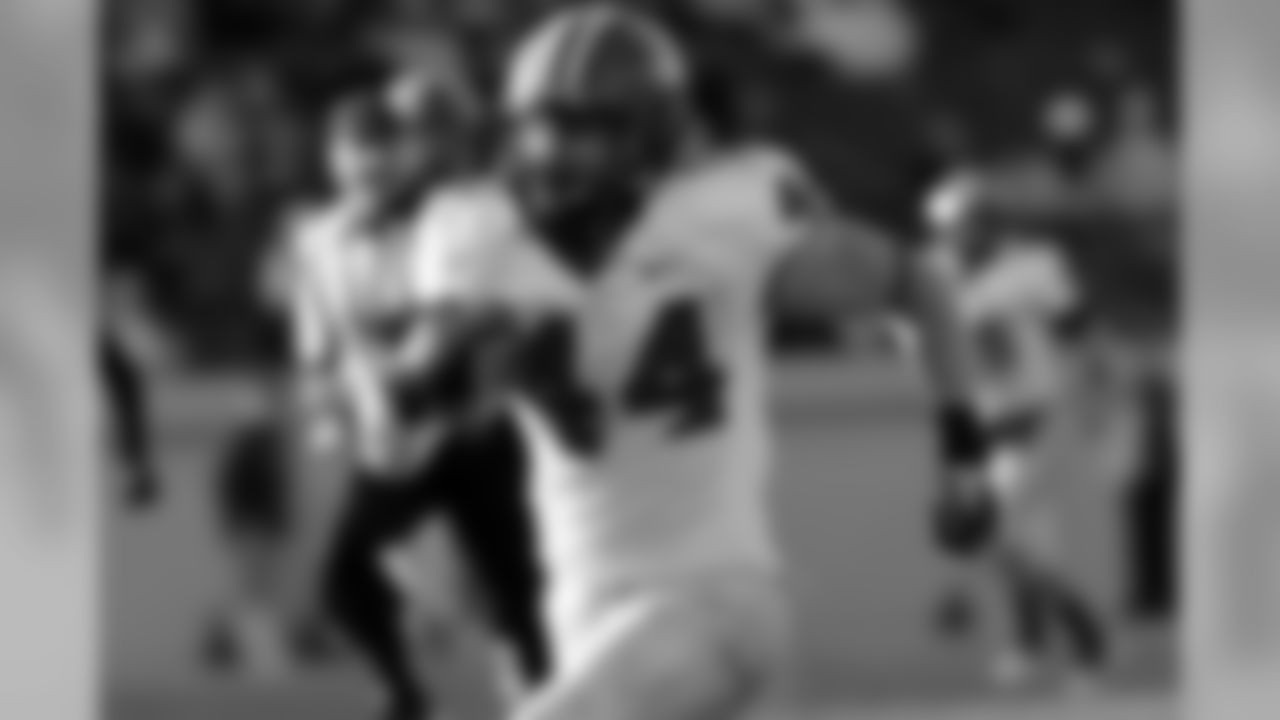
"In reality, I got kind of lucky because the guy kind of tripped. But it looked great," Juszczyk said laughing about the play, clearly not arguing with the outcome or the subsequent attention it earned him.
He still faced an uphill battle, though, even after a strong week at the Senior Bowl. A 6-foot-1 tight end had no chance at making an NFL roster. A 6-foot-1 fullback's odds weren't much better. Fullbacks were already becoming a niche in 2013. That's part of the reason why he was snubbed an invite to the NFL Scouting Combine. But Juszczyk kept the proper mindset, and his confidence never wavered. He didn't need all 32 teams to fall in love with him. All he needed was one.
"I figured I'd be able to find my spot somewhere," Juszczyk said. "My goal was that once I got my foot in the door, at some point I'd be able to showcase my receiving skills."
His transition to fullback mirrored his move to full-time tight end in college. Juszczyk was accustomed to the "fun stuff" in high school – being the star player, constantly having the football in his hands and making regular visits to the end zone.
Harvard head coach Tim Murphy provided him with a bit of a wake-up call upon his arrival in Boston.
"You can't play unless you block," Murphy told Juszczyk. "You need to become a better blocker, otherwise I'm not going to leave you in for the pass plays."
Juszczyk wasn't thrilled about that reality, but he embraced it all the same in order to get to the carrot that dangled in front of him. The NFL posed a similar challenge. The Baltimore Ravens wouldn't have used a fourth-round pick on him if they weren't intrigued by his proficiencies as a pass catcher. But those abilities were immaterial if Juszczyk couldn't excel in the grunt work mandated of a fullback.
"I wasn't going to make the team if I couldn't block," he said. "Once you're able to block, then you're on the field more. And when you're on the field more, then you get more opportunities to catch passes."
It was really that simple in Juszczyk's mind. Survival had always been objective No. 1. The goal was that everything else would ideally fall into place thereafter.

He continued to evolve his game during four seasons with the Ravens, emphasizing different aspects of his skill set each season. Juszczyk started for Baltimore in 2014 in offensive coordinator Gary Kubiak's scheme. His role shifted drastically in 2015 under Marc Trestman – a coach whose system was void of a fullback all together. In order to retain his roster spot, Juszczyk had to prove capable of being the team's third-down back. He did so admirably and racked up a career high 41 receptions and four touchdowns that season. Another successful campaign in 2016 resulted in his first trip to the Pro Bowl.
Juszczyk entered free agency the following offseason and signed a lucrative four-year deal with the 49ers – the richest in league history for a fullback. General manager John Lynch justified that price tag by noting that the 49ers envisioned Juszczyk as an "OW" (offensive weapon). Comprehensive inconsistencies for the 49ers offense in 2017 limited Juszczyk to just 21 receptions on the year. He still managed his share of big plays and earned a second straight Pro Bowl nod. Juszczyk's leaping 28-yard reception despite double coverage against the Houston Texans was the type of highlight-reel play seldom seen from a fullback.
His knack for explosive plays has continued in 2018. Juszczyk hauled in a career long 56-yard catch-and-run against the Minnesota Vikings in Week 1. Two weeks later he was on the receiving end of a 35-yard touchdown pass from Jimmy Garoppolo. What's most impressive is that Juszczyk wasn't lined up at fullback on either play which illustrates his deployment as the 49ers "OW." He was lined up in the slot right against the Vikings and at tight end on the left side of the formation against the Chiefs.
Jerick McKinnon's season-ending ACL tear and various nagging injuries to Matt Breida have only increased Juszczyk's snap count. The fullback has spent most of this season as the 49ers primary third-down back.
"The more injuries you have, the more you keep him out there because you don't have the option to mix up personnel groups as much," Shanahan said. "But even without that, you want him out there because he does a lot of good things in the run game and pass game. Any time you have a fullback on the field, it limits what the defense does."
Juszczyk will tell you that he's grown fond of all the responsibilities encompassed in his job description. He still prefers catching passes and scoring touchdowns, but he's also found genuine enjoyment in the dirty work. Juszczyk works weekly with 49ers run game coordinator Mike McDaniel on the minutia of the position – improving his technique and hitting his blocks at the perfect angle. There's a certain satisfaction in springing Breida for big runs, and Juszczyk deserves ample credit for the running back's breakout sophomore campaign.
The trivial cliché of "the more you can do," while admittedly overused, is literally Juszczyk's calling card. It's what earned him a college scholarship, a spot in the NFL and a big-money second contract.
"We're looking to improve at every position except quarterback and fullback," Shanahan told reporters last winter when detailing the team's offseason plans.
That kind of job security contradicts the notion that fullbacks are going extinct. Or maybe it means that the 49ers have found a player who supersedes the outdated threshold of his traditional blue-collar position. You be the judge.






